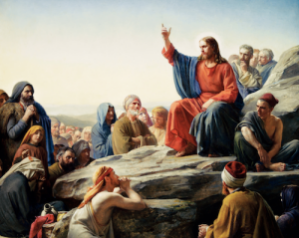Perimeno
Showbread and the New Covenant
Q: I launched into my own personal investigation of the Bible on [the New Covenant]. After doing extensive research, I came to the conclusion that ALL Christians are indeed in the New Covenant, but only the anointed with the heavenly hope partake of the emblems. I hold this opinion based on my research on the similarities between the Old and New Covenants.
I am sure you are familiar with the showbread that was placed before the altar in the temple on the Sabbath day of each week. Only the priests who served in the temple were permitted to eat it. Is it possible that this pictured who may partake of the emblems under the New Covenant? Personally, I think it does. Under the Old Covenant, Moses sprinkled the blood of the covenant on ALL of the sons of Israel, but yet, when the Levite tribe was created and Aaron and his sons anointed to service in the temple, ONLY these ones could eat the showbread.
In conclusion, all the sons of Israel were included under the Old Covenant. All the sons of spiritual Israel are included in the New Covenant. Only the anointed priests serving in the temple could eat the showbread. Only the anointed priests serving in the spiritual temple can eat the emblems.
Your thoughts would be appreciated...
A: Jesus instituted the memorial of his death right after celebrating the Passover with his twelve apostles. This new celebration replaced the Passover which had been a “shadow of the good things to come.” (Heb. 10:1) According to the Passover instructions there were present the unfermented cakes (the bread of affliction) and the lamb; the lamb representing Jesus as the “Lamb of God that takes away the sin of the world.” (Matt. 26:26; John 1:29; 1 Cor. 5:7)
As you know, it was not just the priests who ate the unleavened bread and the lamb at the Passover, but all the people; even the circumcised alien resident. (Num. 9:14; Ex. 12:48) There was no showbread present during the Passover celebration. Jesus used the unleavened bread of the Passover, along with red wine to institute the memorial of his death. (1 Cor. 11:26) The bread, he said, meant his body “which is to be given in your behalf,” while the wine represented his “blood of the covenant” which was “to be poured out in behalf of many for forgiveness of sins.” (Matt. 26:26-28; Luke 22:19; John 6:48-51)
The question therefore arises: If, as you suggest, the bread that Jesus gave his disciples to eat was represented by the showbread that only the priests could eat, then what of the wine that represents the blood of the covenant? (Matt. 26:28) Should only the anointed priests partake of the bread while all Christians can drink of the wine at the memorial?
The showbread had nothing to do with celebrating the Passover! The showbread, or “loaves of presentation,” consisted of twelve cakes that were placed in two sets of layers on a table in the Holy compartment of the tabernacle or temple, in front of Jehovah as an offering before him constantly. (Ex. 25:30; Mark 2:26) They were replaced with fresh ones each Sabbath. According to Jehovah’s instructions pure frankincense was to be put on each layer set. (Lev. 24:7) That excludes the showbread from representing Christ’s sinless body, for frankincense could not be included with sin offerings. (Lev. 5:11; Heb. 10:5, 10,12) Therefore, the showbread has nothing to do with eating the bread and drinking the wine at the Lord’s evening meal. It is also important to note that whenever Jehovah put restrictions on eating anything holy it was always clearly stated, along with any penalty for disobedience. (Lev. 22:9,10, 14-16 ) There is no such Scriptural prohibition on partaking of the bread and wine at the Lord’s evening meal.

